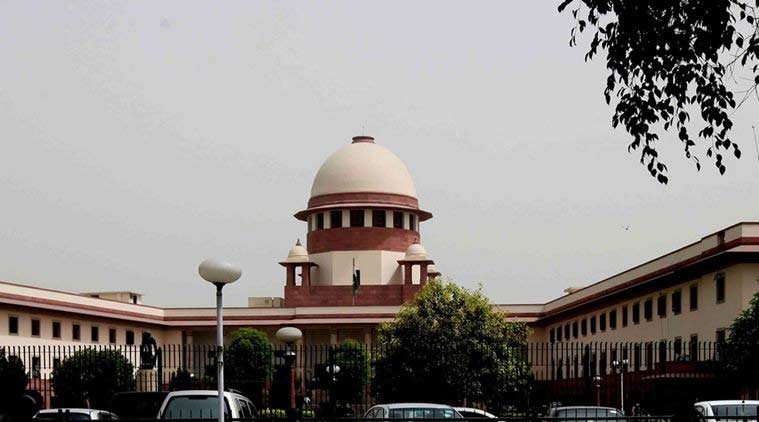Beluvai (near Moodbidri) KARNATAKA / NEW DELHI :
Justice Nazeer said that considering the “Constitutional importance” and “significance” of the issue, the Ram Janmabhoomi land dispute case should be referred to a larger bench.

The observation in the 1994 Ismail Faruqui case that a mosque is not an essential part of Islam and namaz by Muslims can be offered anywhere, “even in open” was arrived at “without undertaking a comprehensive examination,” Supreme Court judge Justice S Abdul Nazeer said Thursday.
The majority verdict by other members of the bench, comprising Chief Justice Dipak Misra and Justice Ashok Bhushan, said that this observation was made in the context of land acquisition.
Disagreeing with this in his 42-page dissenting judgment, Justice Nazeer said that considering the “Constitutional importance” and “significance” of the issue, the Ram Janmabhoomi land dispute case should be referred to a larger bench.
Justice Nazeer referred to the Srirur Mutt case which had observed that “what constitutes the essential part of a religion is primarily to be ascertained with reference to the doctrines of that religion itself”. Ismail Faruqui needs to be brought in line with the “authoritative pronouncements in Shirur Mutt,” he said.
Justice Nazeer posed four key questions.
First, whether in the light of Shirur Mutt, “an essential practice can be decided without a detailed examination of the beliefs, tenets and practice of the faith in question” ; second, whether the test for determining the essential practice is both essentiality and integrality; third, does Article 25 (Freedom of conscience, practice and propagation of religion), “only protect belief and practices of particular significance of a faith or all practices regarded by the faith as essential” ; fourth, do Articles 15 (prohibition of discrimination on grounds of religion, race, caste, sex or place of birth), 25 and 26 (freedom to manage religious affairs) read with Article 14 (right to equality) “allow the comparative significance of faiths to be undertaken”.
Justice Nazeer also referred to a string of rulings on similar issues that have been referred to a larger bench: a three-judge bench of the SC has referred the matter relating to polygamy including Nikah Halala, Nikha Mutah, and Nikah Misya to a Constitution Bench; a two-judge Bench had has referred the matter in relation to the policy decision permitting Ram Leela and Puja once in a year in public parks to a Constitution Bench; and, most recently, a three-judge bench considering the question relating to banning the practice of Female Genital Mutilation (FGM) has referred the matter to a larger bench.
The issue of referring the observation of 1994 verdict had cropped up when the three-judge bench headed by the CJI was hearing the batch of appeals filed against the Allahabad High Court’s 2010 verdict by which the disputed land on the Ram Janmabhoomi-Babri Masjid area was divided into three parts.
Justice Nazeer said that this 2010 verdict has been “expressly and inherently” affected by the questionable observations made in Ismail Faruqui case.
The issue of referring the observation of 1994 verdict had cropped up when the three-judge bench headed by the CJI was hearing the batch of appeals filed against the Allahabad High Court’s 2010 verdict by which the disputed land on the Ram Janmabhoomi-Babri Masjid area was divided into three parts.
A three-judge bench of the high court, in a 2:1 majority ruling of 2010, had ordered that the 2.77 acres be partitioned equally among three parties — the Sunni Waqf Board, the Nirmohi Akhara and Ram Lalla, the deity.
source: http://www.indianexpress.com / The Indian Express / Home> India / by Kaunain Sheriff M / New Delhi / September 28th, 2018








